and, according to the Ministry of Health, the death rate due to it in the country has reached its highest level in the last ten years:
18.7 deaths per 100,000 inhabitants in the country.
What is
hypertension?
As it passes through our arteries, blood exerts a force against the walls of these vessels. This pressure of the blood on the walls of the arteries is called blood pressure.
Hypertension, or high blood pressure, occurs when the flow of blood is too high and ends up damaging the walls of the arteries, which become stiffer and narrower. This contributes to the accumulation of fat and clots, which can clog the arteries and cause heart attacks and strokes.

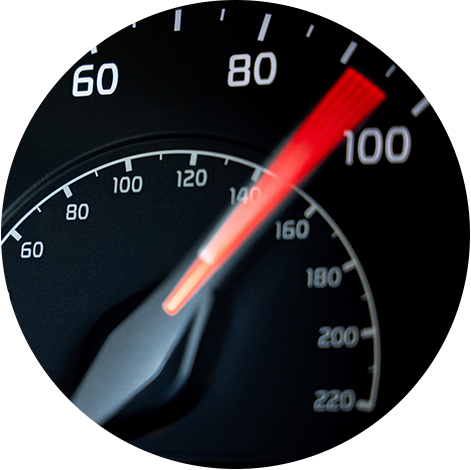
Pressure
limits
Many people hear that the “ideal” pressure is 120/80, but few know what that means. We’ll explain!
The most commonly used unit of measurement for pressure is “mmHg”, millimeter of mercury. It shows how many millimeters the mercury rises in the device to measure blood pressure. So when we say 120 x 80 mmHg, it means that 120 is the pressure in the vessels (systolic) when the heart contracts, and 80 is the pressure in the vessels when the heart relaxes (diastolic).

Danger on
the road

Nausea
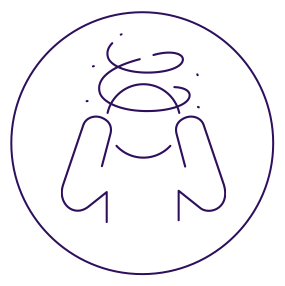
Dizziness
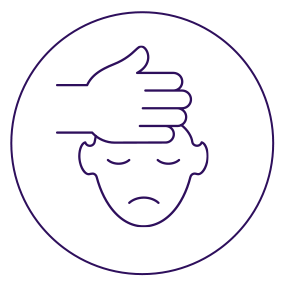
Severe headache
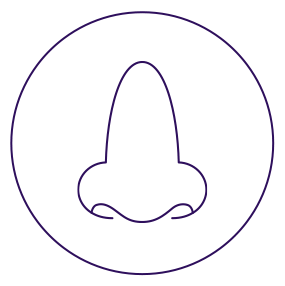
Bleeding from the nose

Buzzing in the ears
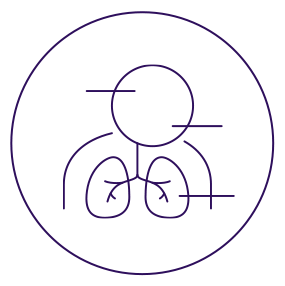
Difficulty breathing

Excessive fatigue
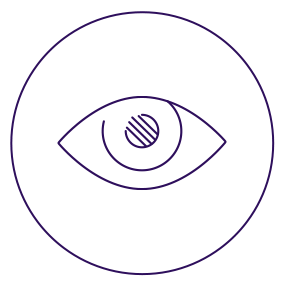
Blurred vision
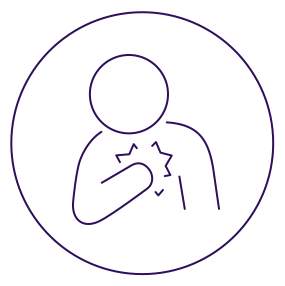
Chest pain

Loss of consciousness

Excessive anxiety
As it is a silent disease, almost half of people with hypertension worldwide are unaware of their condition. Delay in starting treatment can aggravate the condition. This is why frequent medical monitoring is essential to diagnose and treat high blood pressure and avoid complications.
Confirm the route
To confirm the diagnosis of hypertension, the cardiologist assesses the symptoms and the patient’s personal and family history, as well as taking 3 blood pressure measurements on 3 different days at intervals of one week.
Based on these protocols, it is possible to choose the best treatment.
What to get out
of the way

Genetics is responsible for 30% to 50% of hypertension cases, but the determining factor is lifestyle. Although they may have a family history, people with healthy habits may not develop high blood pressure or may keep it under control.
Find out what you need to get out of the way to keep your blood pressure at healthy levels.
Excessive salt consumption
Excess sodium chloride (table salt) attracts water molecules into the blood vessels. With this volume flowing through the arteries, blood pressure will increase. The WHO recommends no more than 5g of salt per day. In Brazil, the average consumption is 9.3g. In addition to the salt we add to food, there is the sodium already contained in food – olives and capers, for example – especially in ready-made foods such as snacks, instant noodles and other ultra-processed foods. Remember that salt and sodium are not the same thing. Sodium is a mineral found in table salt, and table salt is made up of 40% sodium and 60% chloride.
Smoking
The toxic substances in tobacco increase the heart rate and cause the arteries to narrow and accumulate fat.
Quitting smoking considerably reduces blood pressure within just 12 weeks.
Sedentary Lifestyle
Practicing aerobic activities, such as walking or running, on a regular basis helps to maintain flexibility and dilation of the arteries, as well as strengthening the heart and reducing the rate and number of heartbeats.
In addition, moderate resistance exercises, such as weight lifting, have also been shown to be effective in reducing blood pressure.
Obesity
Obese people are about three times more likely to suffer from high blood pressure. And as well as causing fat to accumulate on arterial walls, excess weight can cause metabolic dysfunctions capable of altering sodium absorption and insulin production, both of which have an impact on blood pressure.
Practical tips for getting back on track and staying on the right path
- To reduce salt consumption in your daily life, try including herbs and spices to add more flavor to your food without compromising your health
- Start exercising gradually to reduce the chances of you giving up
- Whenever possible, choose fresh foods, that is, more peel and fewer packages
- Seek medical help to quit smoking

Treatments
In general, changing habits can keep blood pressure under control. However, in some cases (especially in the elderly), it is necessary to use medication prescribed by doctors continuously, and not just during a crisis.
The most commonly used for this purpose are: diuretics, direct vasodilators and angiotensin-converting enzyme inhibitors, among others.
Now that you know how to keep traffic free on your roads, take the opportunity to download and share the campaign material.








